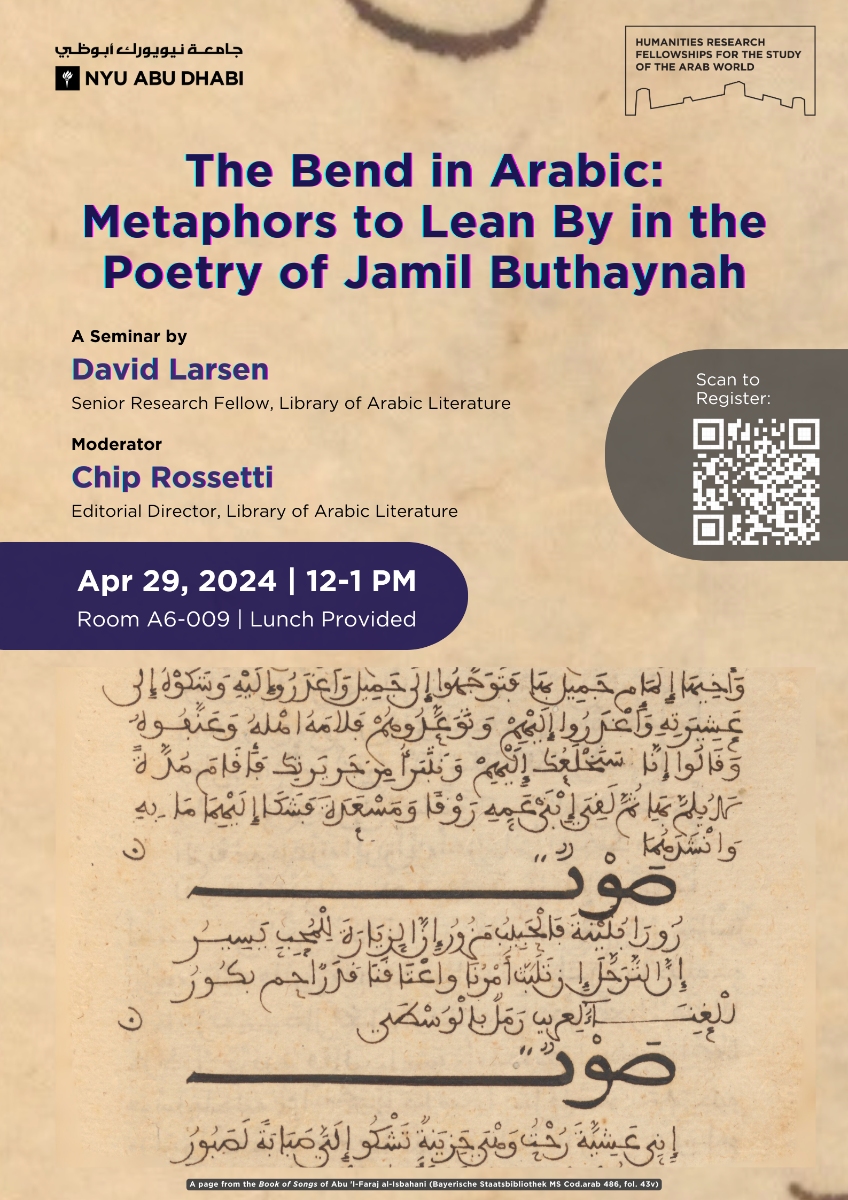Al-Hakam ibn ‘Abdal, who lacked the use of his limbs, was friends with a blind man named Abu ‘Ulayya. One night, the two set out from their homes to the home of one of their confidants—Ibn ‘Abdal being carried, Abu ‘Ulayya being led—only to run into the security chief of Kufa, who jailed them on the spot.
They had been locked up for a while when Ibn ‘Abdal noticed Abu ‘Ulayya's cane lying next to his. At this, he burst out laughing, and came up with this poem (meter: majzū’ al-kāmil):
Locked up with Abu ‘Ulayya!
This is a marvel of the age,
one of us a blind man led around, the other one
a paralytic whose hands and foot are of no use,
I, whose shanks disown me!
The sightless one is him right there.
Ever seen a spiny-tailed lizard of the desert
in cahoots with a fish?
My steed and Abu ‘Ulayya's
are one such fated pair.
To you who boast of equine nobility
we boast of two crutches,
two stallions that never fight each other
and need no costly fodder.
Suppose they caught fire, his and mine.
Would there even be smoke?
These verses by Ibn ‘Abdal are also about Abu ‘Ulayya, whose name was Yahya (meter: ṭawīl):
To Yahya I said in amazement on the night that we were jailed,
in my sleep which was the sleep of a fettered prisoner:
Help me scan the stars and shepherd them,
and I will help you out with [these my] odes of prestige pattern.
Our state at present is a caution to be pondered.
The jailing of the blind and crippled is a shocking thing.
If he or I lose hold of our crutches, we are flung
flat on our faces, prostrate on the ground.
One crutch leads the way blindly.
The other one stands for a foot in the hand.
From the Book of Songs






